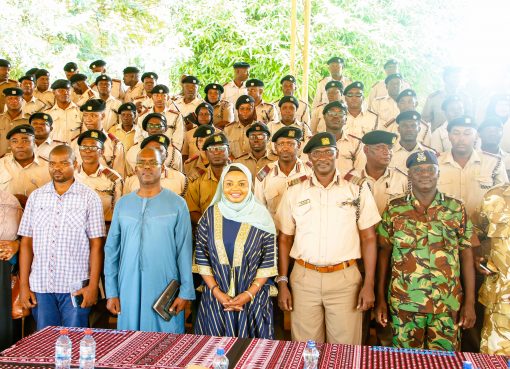Fish cage farmers in Lake Victoria have suffered enormous losses following the mysterious death of fish stock.
Fishermen from Siaya, Kisumu, Migori, and Homabay counties are staring at massive losses due to the unfortunate incident in the lake which experts have attributed to climate change.
The locals are agonizing over the loss of millions of shillings they invested in fish caging after the death of fish stock was reported two weeks ago.
The Kenya Marine and Fisheries Research Institute (KeMFRI) reported that apart from climate change, sedimentation of organic materials and nutrients in the lake and red algae blooming contributed to the death of fish.
In an exclusive interview with KNA, Western and Nyanza regional Fisheries coordinator Samson Kidera explained that the sudden increase in temperature in the lake region increased the biological activities in the water leading to an increase in decomposition.
“When there is a differential change of temperature, there is stratification whereby the cold upper water mixes with the warm bottom water and the constant pounding of the waves dirties the water, therefore increasing decomposition of algae which lowers the level of oxygen concentration thus causing suffocation to the fish,” explained Kidera.
Climate change, Kidera added, causes warming of the water and algae blooming which depletes oxygen in the water hence causing suffocation to the fish.
He also noted that most of the deaths occurred in the shallow waters therefore he encouraged farmers to install the cages in deeper waters to increase oxygen flow that promotes fish survival.
Kidera encourages the affected farmers to remove the dead fish and the rotten water hyacinths from the lake to avoid further decomposition, which may continue to reduce the oxygen concentration and cause more deaths.
David Mbarani, a fish cage farmer from Seme Sub County who was among those affected elaborated on the financial constraints he went through while establishing the venture and he was hoping to reap profits before the end of this year.
Mbarani explained that he started the project last year in April with fingerlings worth Sh30, 000 and leased a cage at Sh25, 000. Later, he invested in a bigger cage worth Sh200, 000.
“The first bunch was a loss because there was a mix-up of catfish which was feeding on the growing tilapias thus prompting me to purchase the bigger cage in order to separate them. I expected a big profit in the next harvest but this tragedy struck,” noted Mbarani.
He further explained that the remaining fish stock was around 6000 pieces to be sold at Sh200 each after harvesting.
Mbarani sent his plea to the county government to put in place measures that would make fish cage farming favourable.
He also advocated for forming SACCOs that would give insurance covers to fish cage farmers to cushion them from financial loss in case of similar tragedies.
By Sharon Akoth and Becky Galyns





